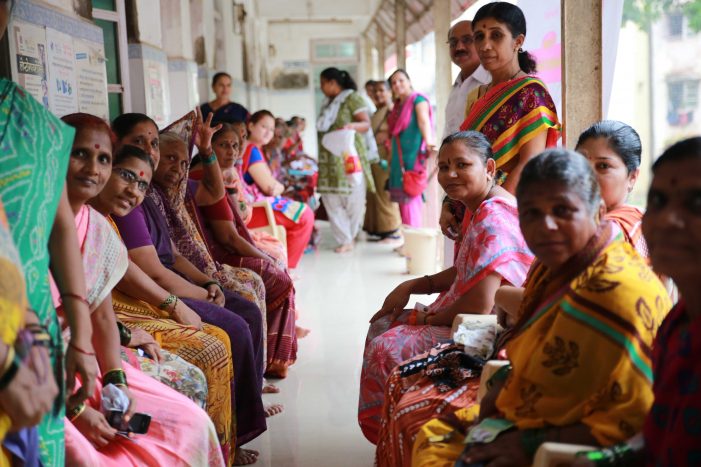Health is a fundamental right, yet access to it is not always as straightforward as it seems. Health-seeking behaviour, a pivotal aspect of ensuring timely healthcare access, encompasses an individual’s proactive inclination to seek medical attention when unwell.
While quality healthcare facilities may be in place, limited health-seeking behaviour within communities can impede the path to care. This challenge is particularly pronounced within vulnerable populations in India.
Unveiling Women’s Health-Seeking Behaviour: Breaking Down Barriers
Women’s apparent reluctance to engage with formal medical care is far from a simple phenomenon; it is intricately woven into several factors that significantly influence their health-seeking behaviour. This intricate web of influences, spanning cultural norms to household dynamics, underscores the complex landscape within which women navigate their well-being.
- Cultural Norms and Societal Constructs
The impact of cultural norms on individual behaviour extends deeply into healthcare decisions. In numerous societies, traditional gender roles confine women within their homes, generating feelings of hesitancy or discomfort when venturing outside, particularly to unfamiliar spaces like health centers. Navigating an environment potentially dominated by males, discussing personal health matters with strangers, and interacting with unfamiliar faces contribute to this hesitance.
- Dependency on Male Companions
Certain societies necessitate men to accompany women accessing healthcare facilities. This reliance on male family members can be a significant hurdle, given men’s restricted availability due to work commitments or other responsibilities. This reliance can result in delayed or neglected medical care, as women might find themselves unable to visit health centers without male companions.
- Overwhelming Domestic Responsibilities
The disproportionate burden of household responsibilities often falls on women. Juggling childcare, domestic chores, and more leaves women with limited time and energy to prioritize their health needs. In such scenarios, seeking healthcare becomes a physically and logistically complex task.
- Priority of Men’s and Children’s Health
In many households, a hierarchy of health priorities exists, with men’s and children’s well-being taking precedence. Women, molded by these norms, might unintentionally sideline their health concerns in favor of tending to their families. This inclination to put others first obstructs timely healthcare-seeking, potentially exacerbating long-term health issues.
- Emergency-Centric Medical Assistance Culture
Certain societies harbor a cultural belief that medical aid should only be sought during severe health emergencies. This deeply rooted mindset dissuades women from seeking preventive or early-stage care. The fear of being perceived as overly concerned or squandering resources on minor ailments causes women to downplay their health needs.
Navigating Solutions: A Multi-Faceted Approach
Addressing this hesitancy requires a multi-pronged strategy that acknowledges the intricate nature of the issue. Initiatives must prioritize gender-sensitive healthcare spaces, align schedules to accommodate women’s routines, and challenge norms hindering women’s mobility. Awareness campaigns play a transformative role in reshaping women’s perception of health and inculcating proactive care-seeking behaviours.
Tailored interventions, tailored to community needs and cultural context, hold great promise. A notable example involves mobile health units in Maharashtra that successfully addressed these barriers. These units reached remote areas, offering women a convenient avenue for seeking healthcare. By negating the need for male companions and adhering to a fixed weekly schedule, this initiative significantly reduced the healthcare accessibility gap for women.
Gender Dynamics in Accessing Healthcare
Certain regions exhibit a gendered disparity in healthcare-seeking behaviour. While women tend to access healthcare facilities, men display lower medical care utilization rates. This trend is attributed to various factors. Men, often breadwinners responsible for households, struggle to prioritize health amidst demanding work schedules. In contrast, women, typically homemakers, possess more flexibility to consult doctors. Additionally, societal constructs of masculinity deter men from seeking care for minor ailments, leading them only to seek medical attention during serious health incidents.
Towards Comprehensive Healthcare Access
Comprehending women’s health-seeking behaviour necessitates a holistic examination of cultural, social, and economic factors that shape their choices. Empowering women transcends addressing gender disparities; it entails facilitating access to resources that nurture their well-being and advancement. Initiatives like mobile health units exemplify the positive impact of customized interventions in bridging healthcare accessibility gaps for women. The realm of women’s health is interwoven with their empowerment; dismantling healthcare barriers cultivates autonomy, resilience, and economic progress. Furthermore, elevating women through healthcare isn’t just about physical well-being; it is a foundation of societal advancement.
Similarly, nuanced reasons behind men’s avoidance of healthcare warrant targeted campaigns challenging rigid notions of masculinity. By dismantling gender stereotypes and advocating holistic men’s health, we can forge a more equitable healthcare landscape. For society to advance toward comprehensive healthcare, recognizing and addressing these intricate behavioural patterns is indispensable. This approach offers hope for a future where every individual, regardless of vulnerability or gender, accesses the timely, requisite healthcare they deserve.




